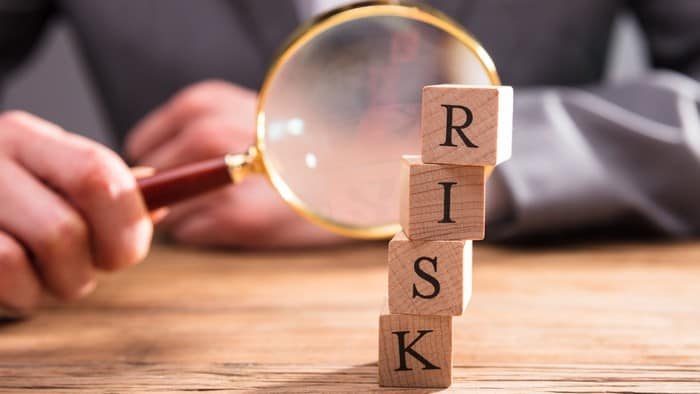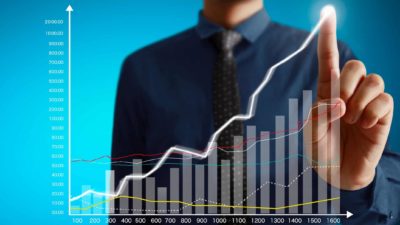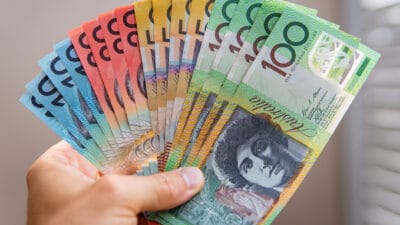Risk is one of those words that ASX investors probably use a little too much. Especially considering it can mean different things to different investors.
Classical modern portfolio theory teaches that share market risk has a linear relationship with returns. That is, the higher returns you want, the more risk you have to take. Whilst the merits of this theory are still being debated, it does posit an interesting question: How can you evaluate the risks of investing in a particular ASX share?
Well, an easy way to assess risk is to look at how much money a business makes. It sounds simple, but there are two kinds of companies that you can buy on the ASX. Those that are valued on the money they make today. And those that are priced for the money they might make in the future.
Risk on, risk off
Take ASX 200 growth share Afterpay Ltd (ASX: APT). Afterpay is currently being priced with a market capitalisation of $26.62 billion.
Looking at Afterpay's full-year results from last year (FY2020), and we can see that the company brought in $44.4 million in earnings before interest, tax, depreciation and amortisation (EBITDA). A $26.6 billion company bringing in $44.4 million in earnings? That valuation sounds a little silly. But those earnings grew at an annual rate of 73%. As such, we can reasonably assume Afterpay is being priced for the money it could make in the future, rather than its current earnings. If Afterpay (hypothetically) grows its earnings at 73% every year for a decade, its valuation starts to look a lot cheaper.
But something like the ASX 200 blue chip Coles Group Ltd (ASX: COL) is a different kettle of fish. Last year, this company reported earnings before interest and tax (EBIT) of $1.39 billion for FY2020. On today's pricing, Coles has a market capitalisation of $22.24 billion (lower than Afterpay's, incidentally). This tells us that Coles is probably being priced for the cash it generates today, rather than the growth it might deliver in the future. This makes sense. Coles is an established, mature, dividend-paying business.
Birds in the bush
And that's where risk comes in. Coles has runs on the board right now. It has shown it has what it takes to generate large volumes of cash flow today. As such, it is fundamentally less risky than Afterpay, which might deliver the same levels of cash one day, if its growth rates continue and everything goes as planned.
Warren Buffett once said of investing that 'a bird in the hand is worth two in the bush'. This can be applied to what Coles and Afterpay have on offer today. Of course, some investors like chasing companies that might have bushes full of birds. But Buffet implies it's a whole lot less risky if they're in the hand.
So if you're wondering which of your ASX 200 shares are the 'riskiest' today, have a look at how much cash they generate, and what they are being priced at. That will give you a great feel for how risk-tolerant your ASX share portfolio is.









